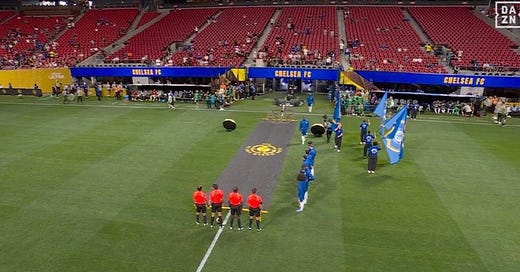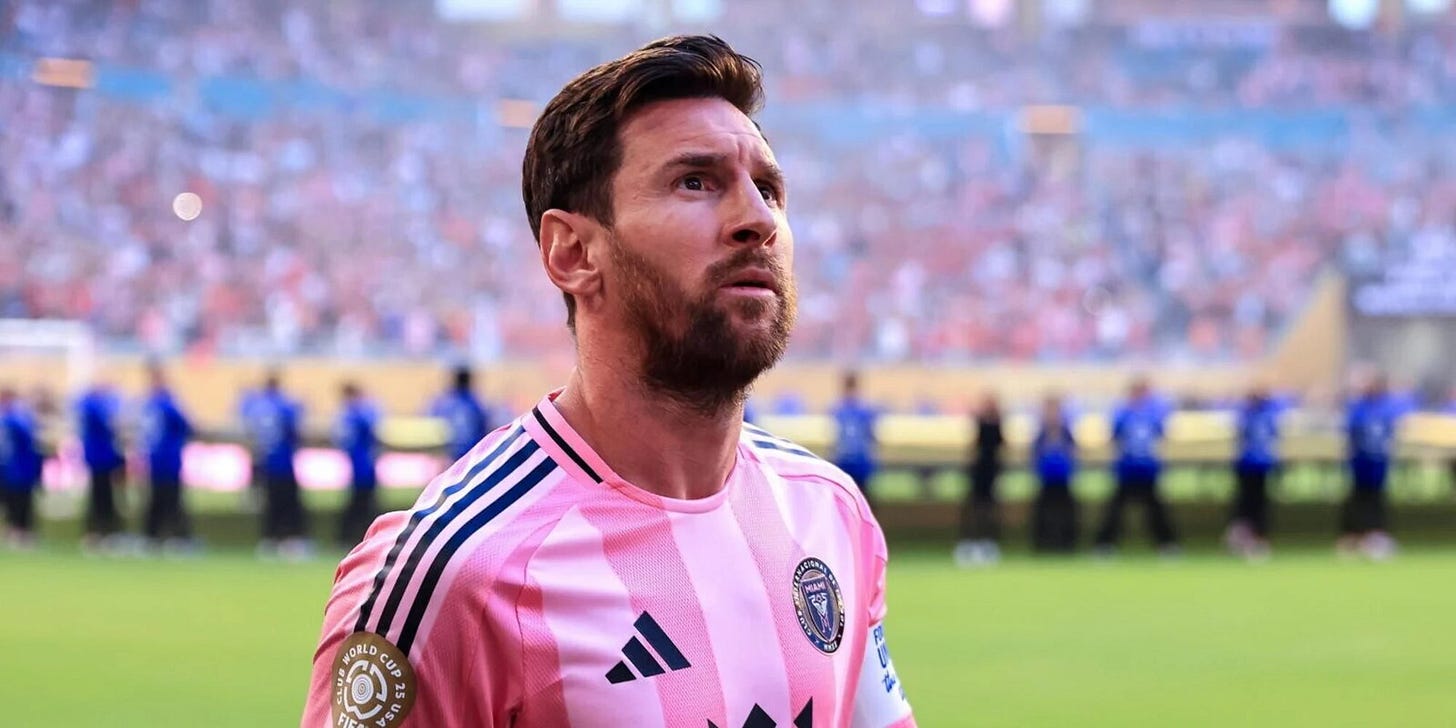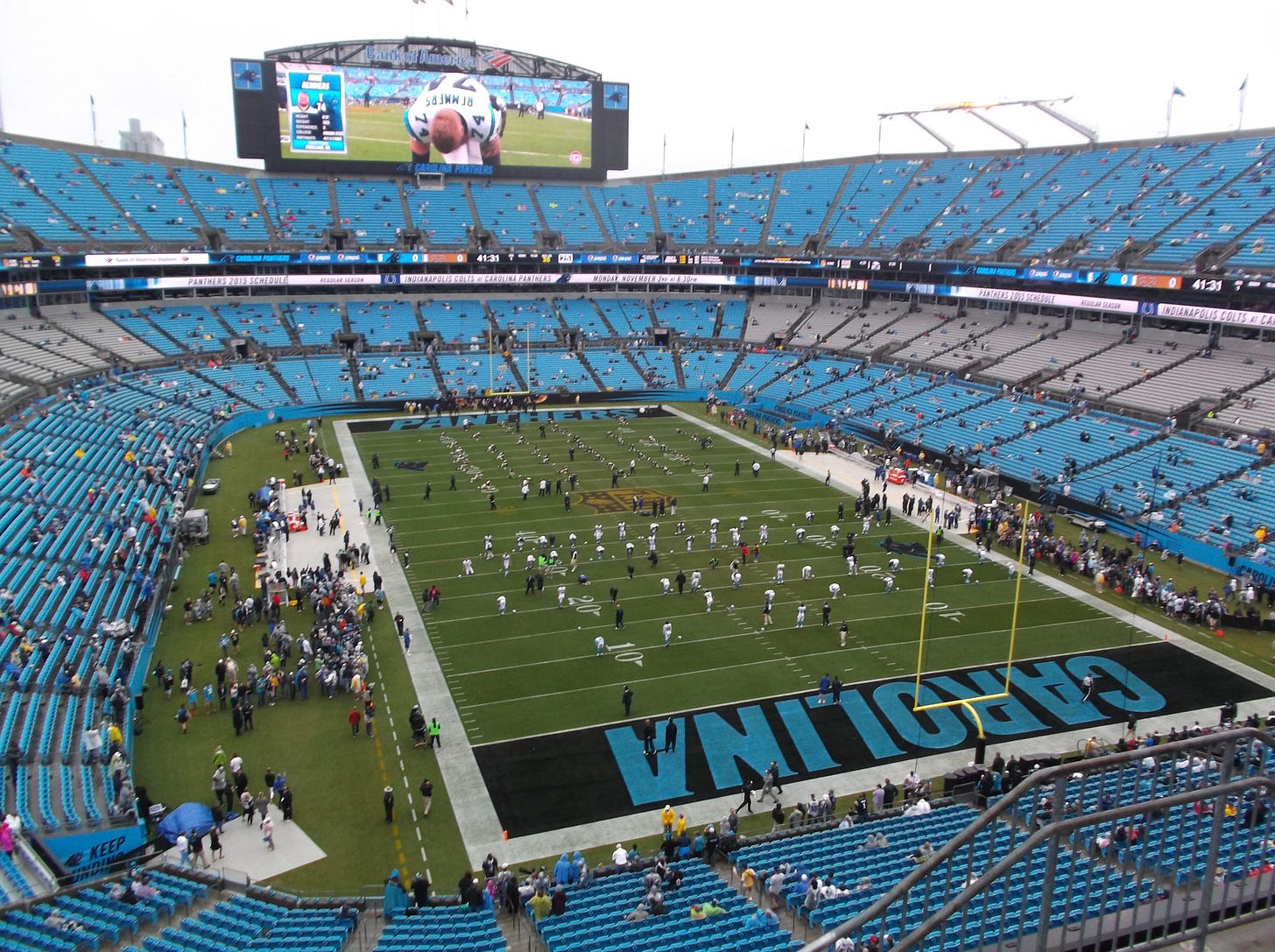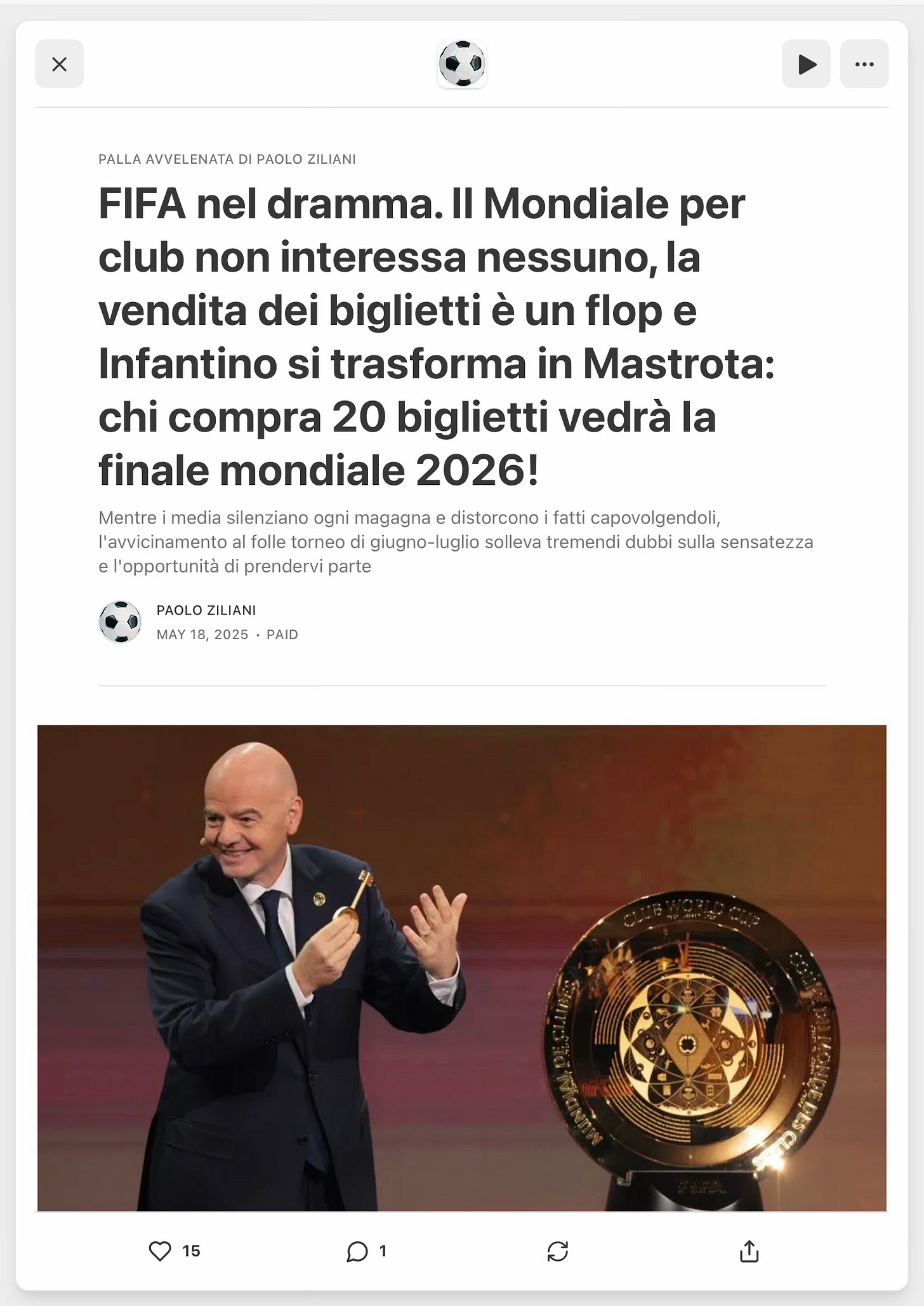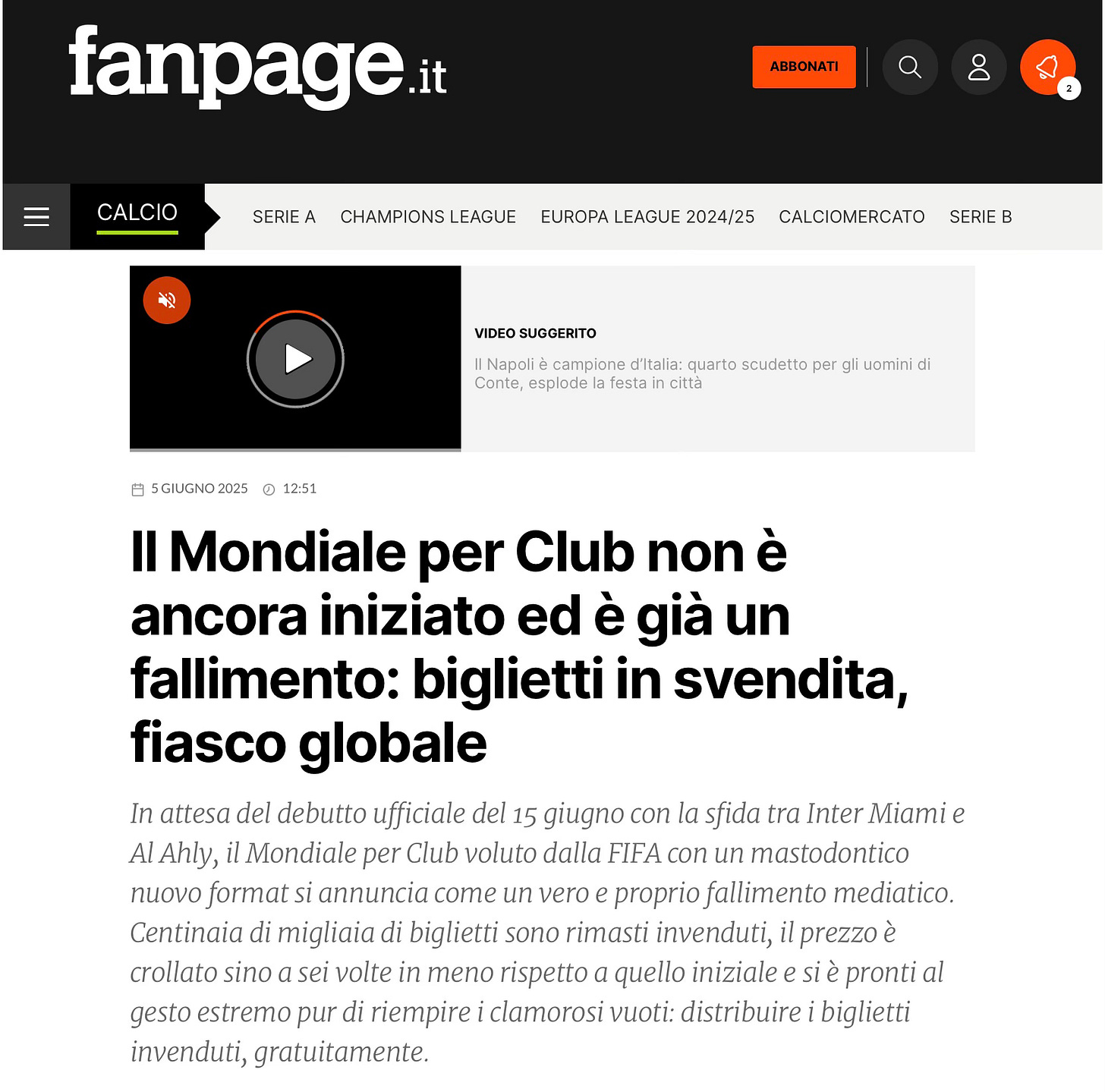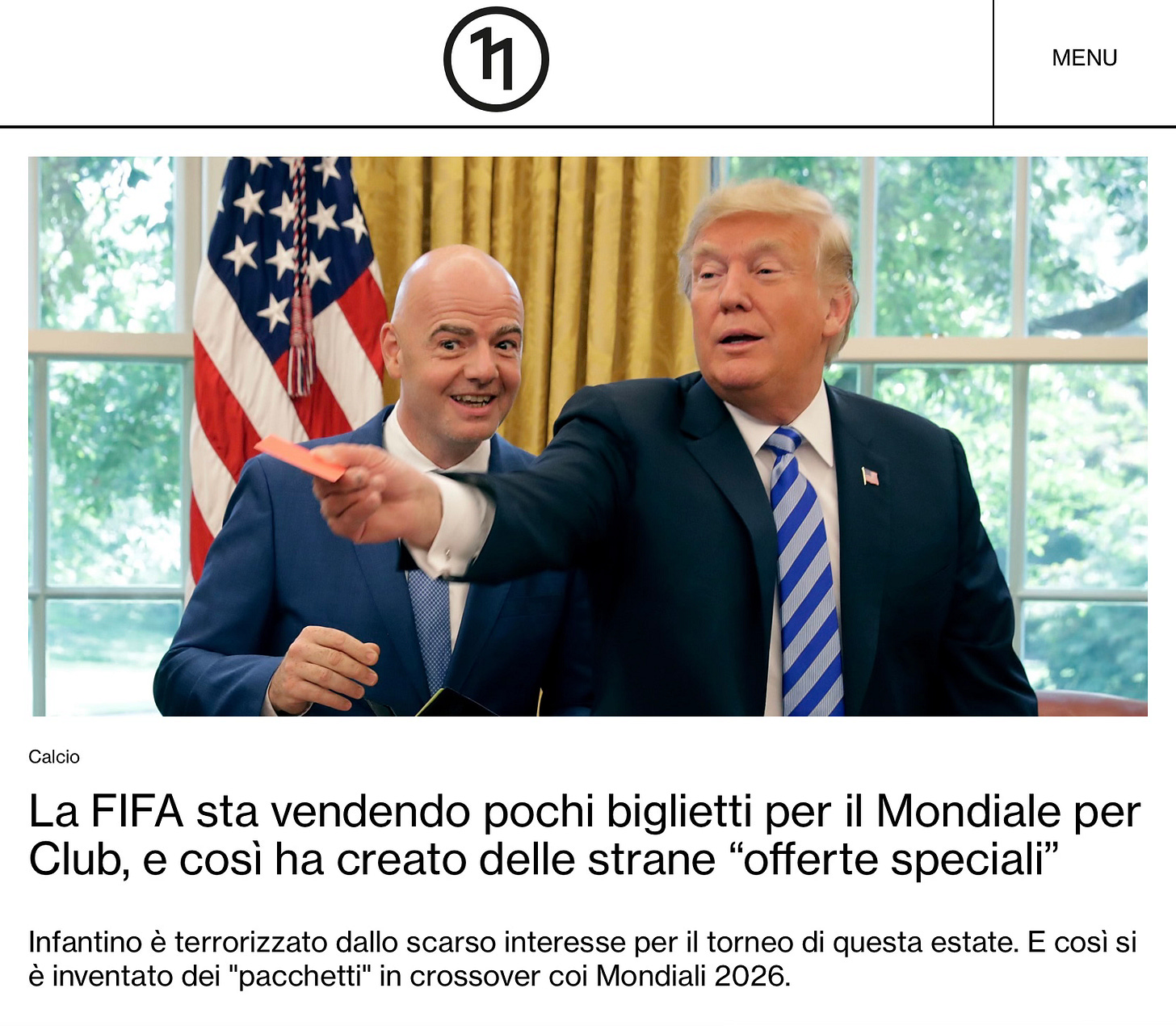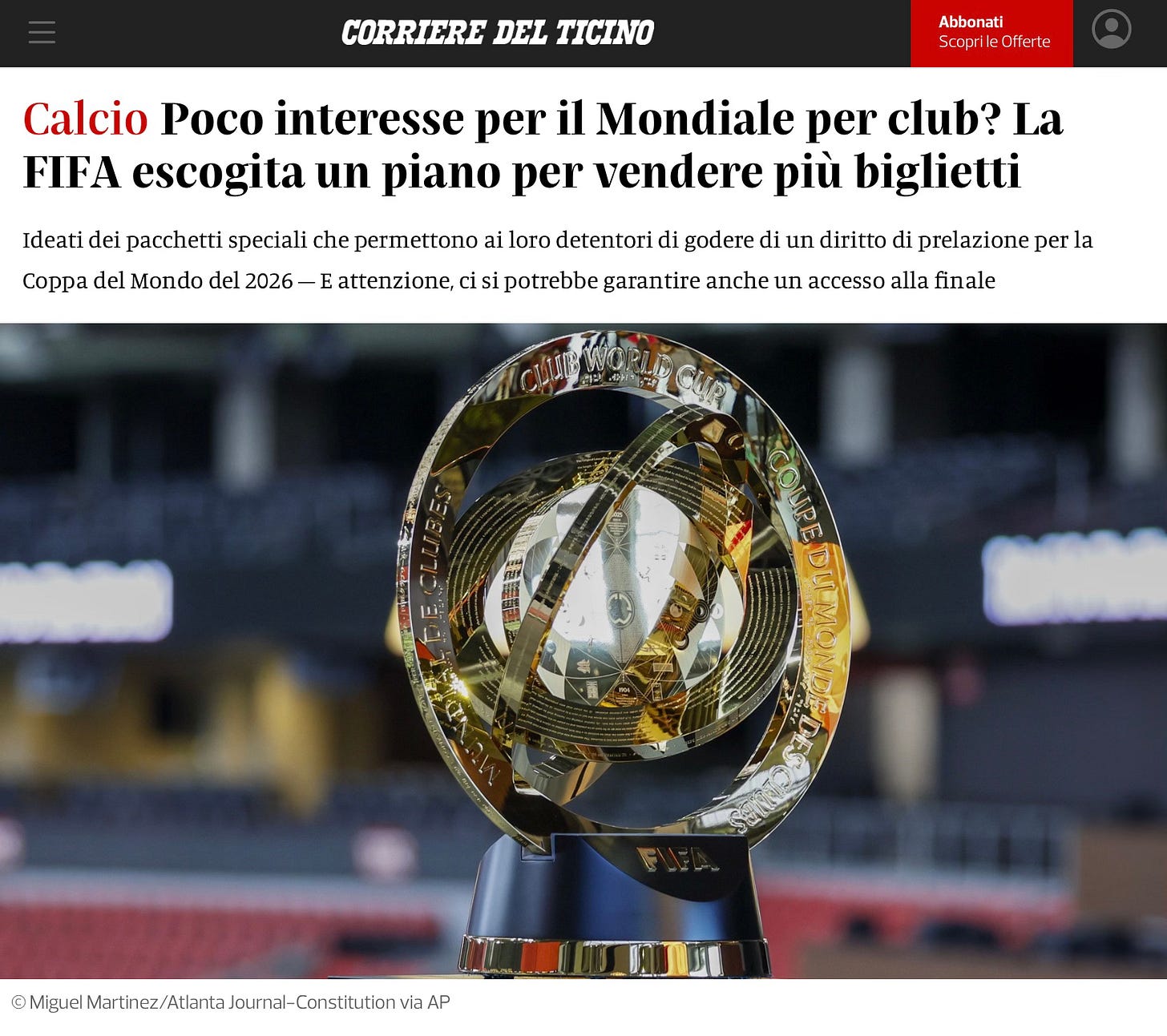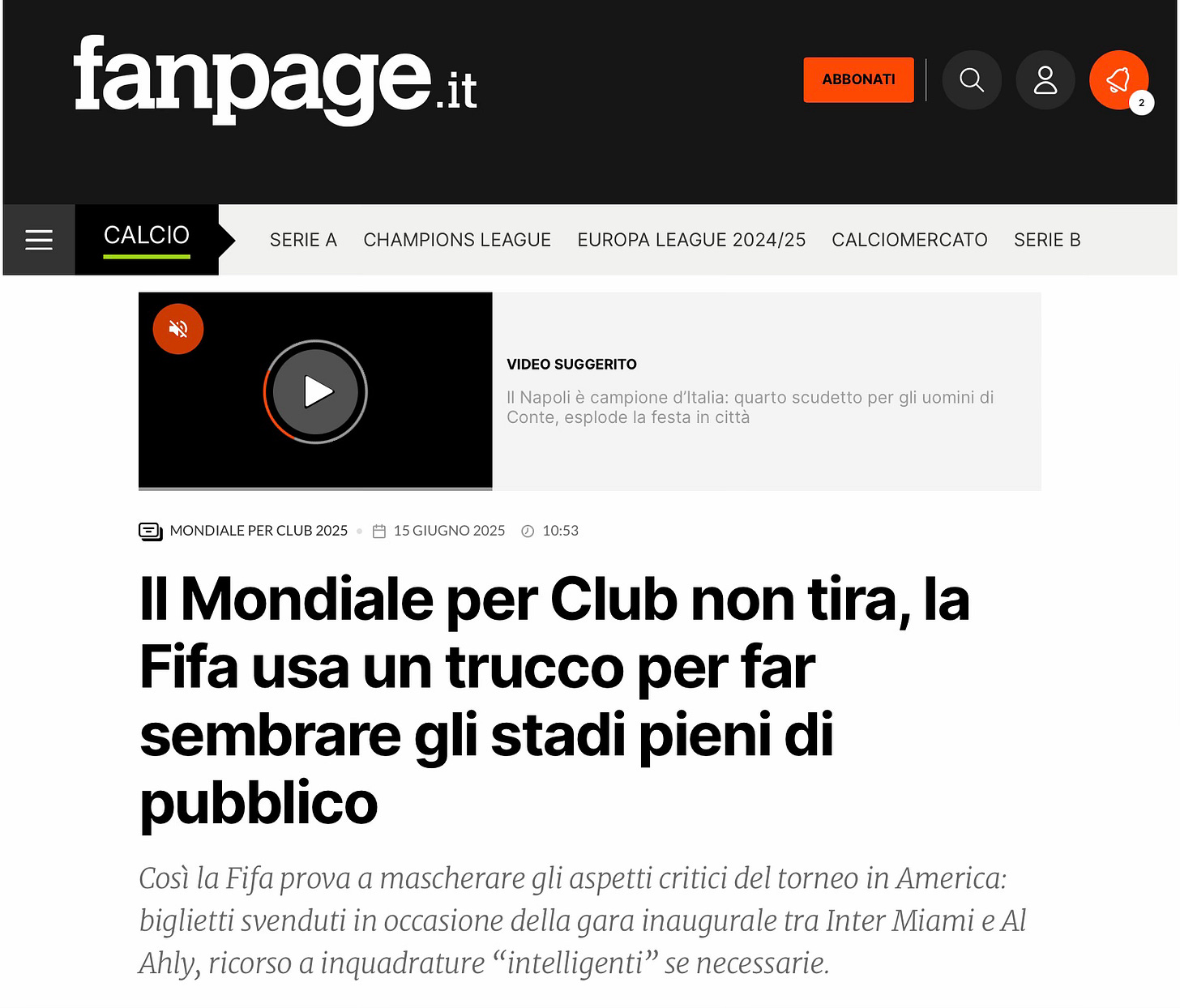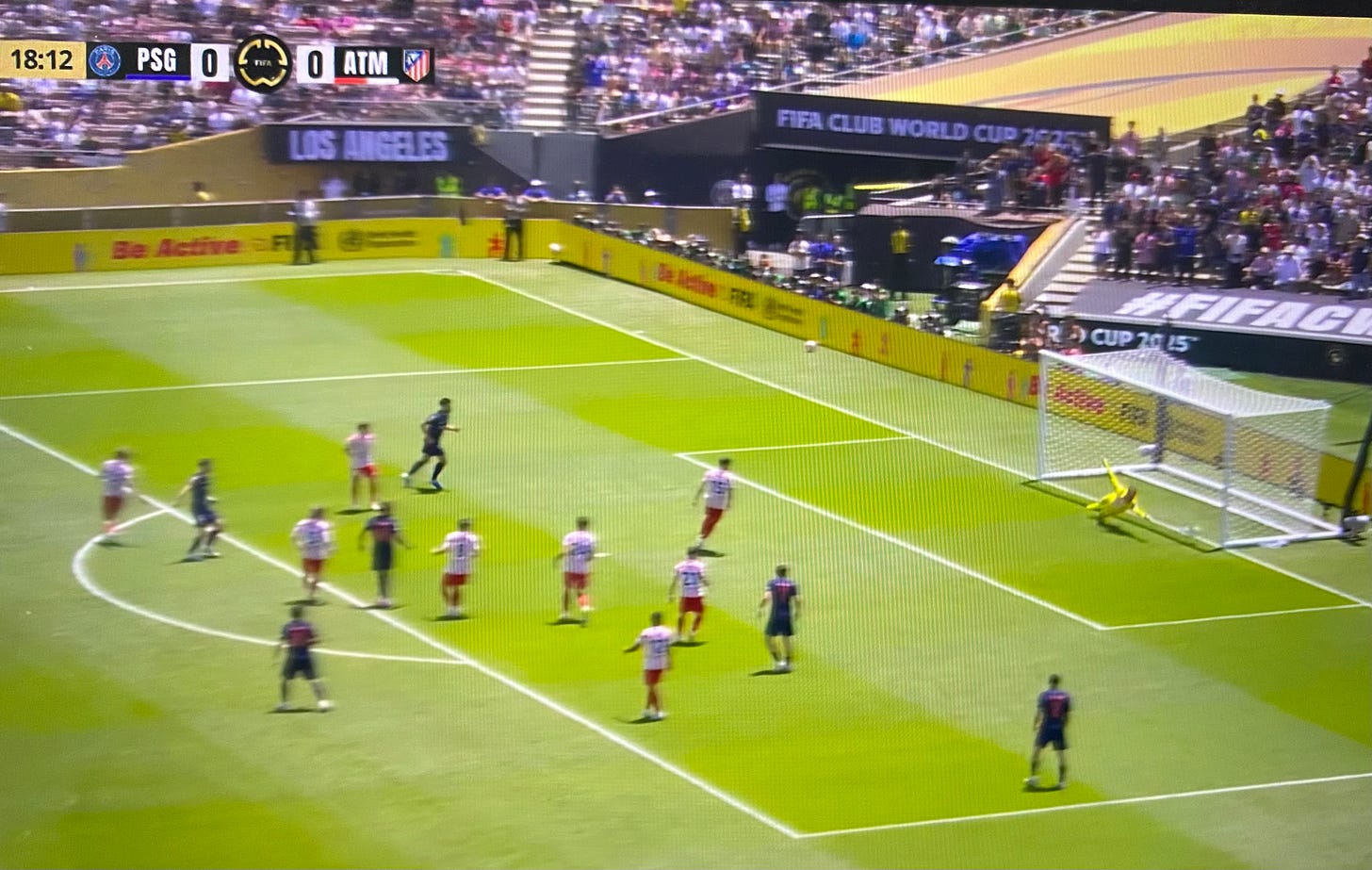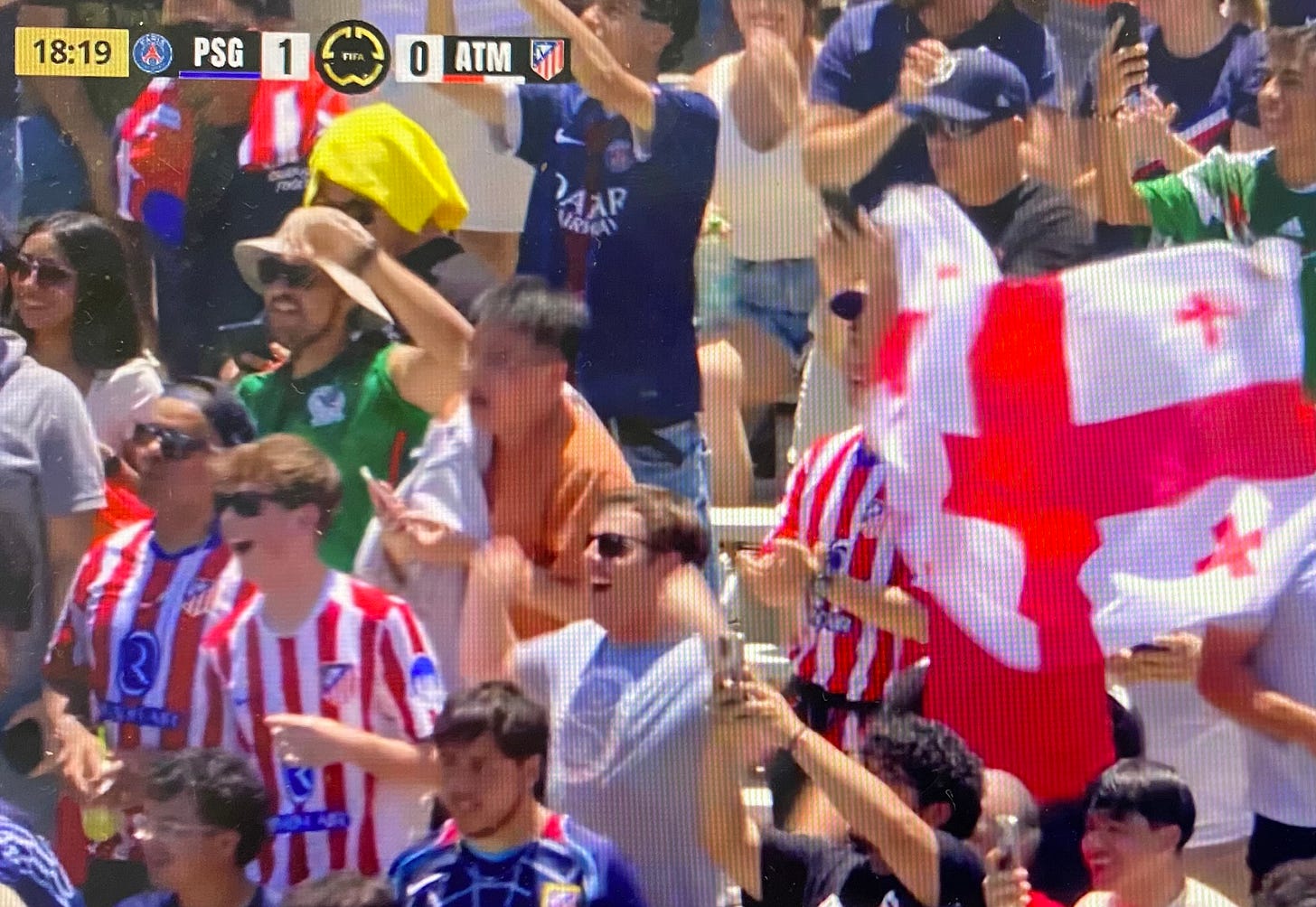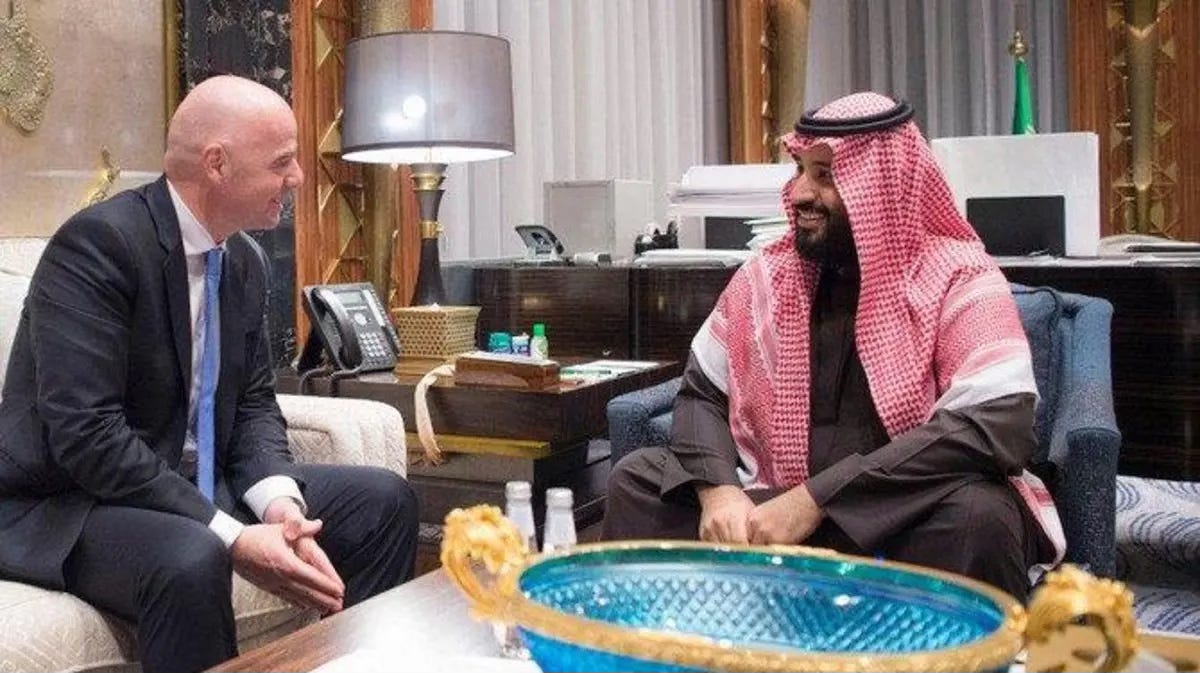Club World Cup: tickets sold to students for $4, given away to CityTour tourists, and complimentary with toaster purchases. And in the stands, extras cheering for the wrong team
To avoid the risk of empty stadiums, FIFA put tickets on sale for $20, granting access to five matches. Yet, take a look at the stadium for Chelsea’s match yesterday
(Translated into English by Grok)
Do you know how FIFA managed to fill the 65,326-seat Hard Rock Stadium in Miami, which hosted the Club World Cup’s opening match between Inter Miami and Al Ahly three days ago? Just days before the tournament’s start, despite Lionel Messi’s appeal, the situation was dire: fewer than 15,000 tickets had been sold, and the opening match risked being played in a nearly empty stadium, with a desolate atmosphere.
The cheapest tickets—let me emphasize, the cheapest—were initially priced by FIFA at $349, equivalent to €300; imagine the cost of the best seats. When no one bought them, FIFA president Gianni Infantino ordered drastic price cuts, but the situation didn’t improve. So, three weeks before the tournament began, Infantino decided to go all-in, whatever the cost, striking deals—not just in Miami but across all U.S. host cities—with organizations, institutions, and commercial businesses to offload tickets at rock-bottom prices or even for free, ensuring the stadiums would be filled.
Sticking with Miami, the site of the opening match featuring Messi, FIFA started by signing an agreement with Miami Dade College, a public institution with 125,000 enrolled students. This deal allowed every student, professor, or staff member to purchase a ticket for just $20—yes, $20, when the cheapest ticket was originally $349—that granted access not only to the Al Ahly-Inter Miami opener but also to four of the five other matches scheduled at Hard Rock Stadium in the group stage: Palmeiras-Al Ahly, Inter Miami-Porto, Inter Miami-Palmeiras, Boca Juniors-Benfica, and Boca Juniors-Bayern.
In practice, for $20, you got five matches at $4 each (about €3.80). But since filling 65,326 seats is no small feat, FIFA took extra precautions—pardon my language—to cover their bases. For instance, they gave away tickets to every tourist on a CityTour or to anyone buying a toaster or phone at one of Miami’s many appliance chains.
This happened everywhere, from Atlanta to Pasadena, Boston to Seattle, Nashville to Philadelphia. For the record, the city—or rather, the stadium—that worries FIFA the most is Charlotte, North Carolina, where soccer fever seems to be at an all-time low. The Bank of America Stadium, with a capacity of 74,867, will host two group-stage matches and two round-of-16 games. Despite slashed prices, deals, and giveaways, organizers despair of filling it. They’ve already instructed that the 30,000, 40,000, or 50,000 spectators who show up—regardless of the ticket they bought or received for free—be directed to the stadium’s two main sections. This way, as the late Italian broadcaster Enrico Ameri might have said, the stadium will appear “packed to the rafters.” Naturally, TV crews will take care to hide the completely empty sections of the Bank of America Stadium from viewers—a directive already in place since the first match and meticulously followed.
I’ve been writing about the Club World Cup’s lack of interest in America for a while now, as my subscribers know. Exactly one month ago, on May 18, when the media was trumpeting the tournament’s supposed wonders, I published the article below, simply reporting what American newspapers, led by the authoritative The Athletic, were saying about the reality in front of them: in the U.S., nobody cares about the Club World Cup.
I also cited some Italian outlets—naturally, non-mainstream ones—that, like me, refused to spin fairy tales. For example, the online magazine Undici, drawing on American reports about the ticket emergency and FIFA’s desperate efforts to address it, wrote: “The latest proposal seems like a fairly desperate attempt: by purchasing at least 20 tickets for a 2025 Club World Cup match, FIFA will guarantee an option to buy a ticket for the 2026 World Cup final. If you want two, you need to buy at least 40 Club World Cup tickets. A good opportunity if you can get a group together, but finding 20—or worse, 40—people is, to put it mildly, quite complicated.”
As I’ve said, if you want the truth in Italy, given the cozy relationship between those who organize the show and those who report on it, you need to turn off the TV and ignore so-called national newspapers, not to mention specialized sports dailies. They’ve never devoted a single page—or even a short, single-column article—to investigating how the Club World Cup is perceived in the U.S., or to noting that FIFA was struggling to sell tickets. To find out, assuming you had a vague inkling, you had to Google “Club World Cup low ticket sales.” Only then would you come across sources like Swiss TV, Corriere del Ticino, Fanpage, and independent outlets like Undici, Il Post, Reddit, Lettera 43, and my own Palla Avvelenata account, which explained exactly what was going on.
The truth is, the stadiums hosting the Club World Cup even have paid extras. If you have access—through a DAZN subscription or otherwise—to rewatch PSG-Atletico 4-0, go to the 18th minute. You’ll see with your own eyes that when Fabian scores the 1-0 goal, behind the net, there are spectators wearing Atletico Madrid’s red-and-white jerseys—randomly handed out to the hired crowd along with PSG shirts—who are wildly celebrating the goal scored by PSG, against the team they’re supposedly supporting.
To anyone paying even the slightest attention, it’s clear that every match in this tournament features hordes of hired extras making noise, adding color, and creating excitement, with no clue who’s playing or against whom.
In short, just like the Qatar World Cup, we’re witnessing a farce. That said, the saddest part is seeing Inter and Juventus fans get upset at the mere mention of criticism toward the tournament, as if the critiques were aimed at their beloved clubs. Because Inter and Juventus are involved, it’s forbidden to speak ill of the Club World Cup. It’s a magnificent tournament, the eighth wonder of the world. As they say in these cases: nothing will ever be the same again.

